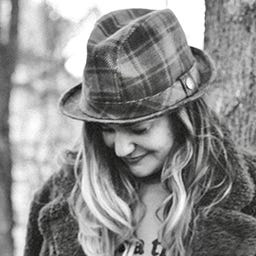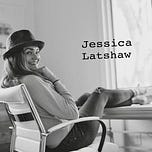This is the audio narration of “Quietly, Steadily, Slowly Healing” by Jessica Latshaw.
At the time, the man I loved had just told me it wasn’t going to work between us. He’d recently returned from a semester overseas and I thought he’d come back exactly how he’d left. Lingering with me, talking quietly under the moon and against the hood of one of our cars, until the night turned to morning and we didn’t care that our opportunity for sleep had come and gone. We could sleep tomorrow; but right now was for this and us and we’ll stretch out today—this day, this moment—until it swallows up tomorrow entirely.
But silly me, I was wrong. Instead he came back and always had to go, would see me later, didn’t I know he had lots of friends to see, too? Instead he ended conversations—ended them! As if all of life wasn’t simply the backdrop for our one, glorious conversation that sometimes took forced breaks for ridiculous things like sleep and work and important meetings. And the real miracle was that, for a time, at least, both of us understood this. We shared a secret and our bodies couldn’t help but show it by sitting unnecessarily close enough to whisper and still be heard in a world that spoke about boring, non-secret things at full volume.
I didn’t know we were over. He knew it first, decided with a whole ocean between us, and finally told me one night after I’d spent all of the other nights since he’d come back confused and profoundly sad. People had told me not to rush another relationship. I’d only been officially divorced a few months; “You need time to heal, Jess,” they said, acting like they cared, but really, they just had this vague idea of what was proper. And surely a recently divorced pastor’s daughter staying up all hours of the night singing on porches and stages and around campfires with a boy who also made her laugh and think and wonder why people couldn’t just make art and write prose and lyrics and eat peanut butter and call it enough of a life—well, surely all of that couldn’t be entirely proper.
And now I was needing time to heal all over again, not understanding why life is so much harder than anyone ever let on before. I remember one day we were talking, me and this boy, and he told me I didn’t need someone else to be happy. I thought that was awfully convenient advice for him to give, considering he was the someone else in the situation and he was also the one who was no longer available. “You’re enough, you know,” he said, “Just you. You’re awesome, I know this. You should take time to know this, too.”
Now, just about the worst thing to be told by the person you desperately want to still be dating is, “Hey, gee! Have you considered dating yourself?” But he had enough of a point to make me wonder a little bit about what he meant. Maybe it was because I was feeling blessedly brave or more likely it was because I was trying to impress this boy, but either way, the next time I saw him I casually mentioned going to the beach. This might not be impressive for people who live minutes away from the ocean, but here in Pennsylvania, we are enough minutes away to more succinctly name the hours that it takes us to get to the beach (two, to be specific), rather than the minutes.
“When are you going?” he wondered.
“Tomorrow.”
“Who are you going with?” he asked.
“Nobody,” I said, with a nonchalance I hoped made him realize how incredibly fine I was all alone. That I had spent all my growing up years dreaming of the days I could drive to the beach alone, and not, in fact, drive to the beach with someone just like him on a weekend just like this.
He smiled. “That’s good,” he said, which is funny because I still wasn’t convinced it was good at all, but whatever.
“Yeah,” I smiled, too, “I guess I’m worth taking to the beach.”
The next day was Sunday and I took church to the ocean. I drove the few hours, parked, and took a towel to sit on the sand. I buried my feet, felt the juxtaposition of the coolness of the shore, inches under the exposed sand, mixing with the sun on my head, my shoulders, my body that sat here, worthy of witnessing beauty, experiencing rest, and listening to myself even when it’s a soundtrack I was sure I’d heard before: a broken heart, bitter disappointment, the suspicion that life is sweeter for everyone else.
I sat there watching the breakers dance. I prayed and thought and practiced silence. I didn’t do anything to distract myself from the truth: I was sad and tired of being sad; I was hurt and tired of being hurt.
There is a few lines in the New Testament found in the letter from James that says:
“Consider it pure joy, my brothers, whenever you face trials of many kinds, because you know that the testing of your faith develops perseverance. Perseverance must finish its work so that you may be mature and complete, not lacking anything.” (James 1:2-4)
Now, those words—“the testing of your faith”—had always made me think of something far more religious than heartbreak over a boy. But I was beginning to realize that faith and the close, knife-sharp matters of the heart are like blood vessels to the heart; they operate so closely in tandem that they are symbiotic, reliant on each other. Perhaps this latest heartbreak was a greater test to my faith than any amount of rote Bible memorization, behavior modification, or lack of cussing I will ever do.
American author A.W. Tozer said, “What comes into our minds when we think about God is the most important thing about us.” And maybe the testing of my faith looks like this: what thoughts do I nurture while my heart is raw and my mind on fire with grief? Do I still believe that God is good when I don’t feel good? Do I still believe He has good for me when I don’t see the good?
I remember telling God I will trust Him—and lest you think I am wonderfully spiritual, let me remind you that I had no recourse, no alternative plan, no path that looked better from where I was. I spoke the words into the ocean breeze, the sound of it dying as soon as it was uttered, but the heart of it remaining. The Psalmist talks about God keeping a bottle for our tears, they are so precious to Him; perhaps it is the same with our prayers, perhaps someday we will see the piles and piles of our prayers, the bricks they became, the bridges they sustained, the trails through the woods they forged.
Those sentences from James connect the trials we experience with our own completion, with not lacking anything. I sat there on the beach, reluctantly and sarcastically “dating myself,” and yet, thoughts of wonder began to spring. Maybe this heartache will lead to better things. Maybe these wounds will heal and as they do, I will become better inside, more able to face life with an open and fearless spirit, able to have what I need when I need it. I didn’t know what that looks like, exactly, but I began to imagine something better than this and I think this is what the saints call hope.
When I think about that afternoon spent solidly alone on the beach, it feels significant. I faced my pain. I was not drowning it out with scrolling or eating or more men to fall in love with or greater religious acts or whatever we humans do to avoid our pain (the list is long; for all of us, this list is long and familiar). In essence, I invited my pain to the beach. Not my idea of romance, but at the time, it was the only companion who would not quit me, so Pain it was.
In his book, The Wounded Healer, Henri Nouwen writes, “When we become aware that we do not have to escape our pains, but that we can mobilize them into a common search for life, those very pains are transformed from expressions of despair into signs of hope.”
I didn’t leave the beach with a great plan. I didn’t suddenly stop missing the boy I desperately wanted to either stop missing or start spending all my time with again—this in between space of seeing him sometimes, only casually now, while feebly trying to talk myself out of my feelings because Look, feelings! Things have changed! Please get with the times! was a fresh kind of torture that did not feel sustainable. But I felt some hope. I remembered that trials have something to do with completion and not lacking anything and all I’d been seeing was my incredible lack, so this felt like maybe change was coming and for once, it would be a good change. I felt calmer inside, like I’d had a conversation with someone who loved me, who thought I was interesting, who always wondered what I was thinking about this and that, and who would sit and listen to every last song I write without once looking at their phone.
I felt, in the words of Henri Nouwen, some signs of hope. Imagine that. The girl who kept seemingly picking the wrong guy, who dated herself because of what felt like a punishment (honestly, I now love the opportunity to date myself. One of my favorite things to do is to sit at a restaurant alone with a good book and quietly eat my lunch; oh, how the seasons change!)—and who had no idea what, if anything, would change or how, could not deny the burgeoning feeling of hope within as she brushed off the sand and walked back to her car and drove home.







Share this post